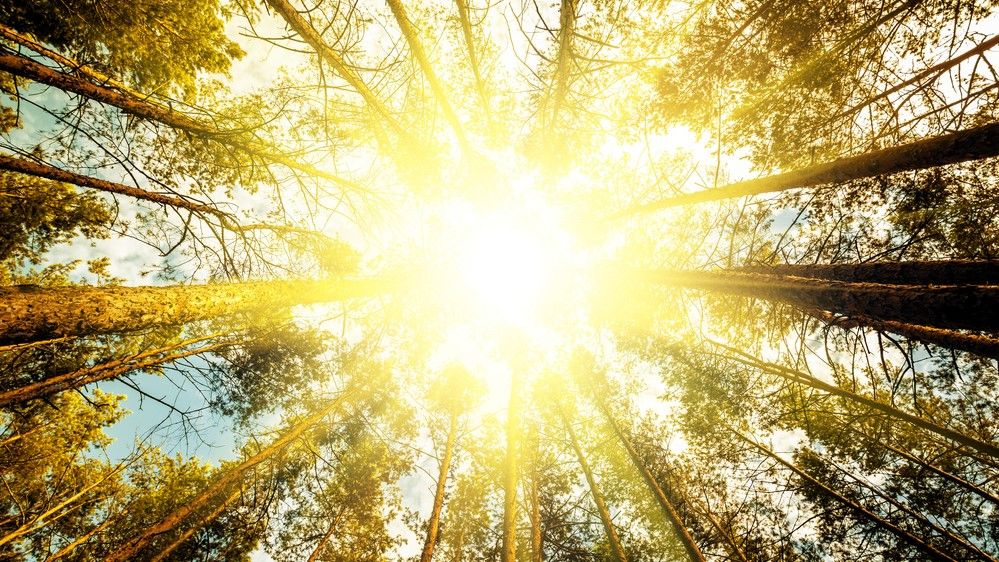Photosynthesis is one of the most important chemical processes on Earth. (Image credit: Shutterstock)
One of the most well-studied chemical processes in nature, photosynthesis, may not work quite how we thought it did, scientists have accidentally discovered.
Photosynthesis is the process by which plants, algae and some bacteria convert carbon dioxide and water into oxygen and sugars to use as energy. To do this, the organisms use sunlight to oxidize, or take electrons from, water; and reduce, or give electrons to, carbon dioxide molecules. These chemical reactions require photosystems — protein complexes that contain chlorophyll, a pigment that absorbs light and gives plant leaves and algae their green color — to transfer electrons between different molecules.
In the new study, published March 22 in the journal (opens in new tab), researchers used a new technique, known as ultrafast transient absorption spectroscopy, to study how photosynthesis works at a timescale of one quadrillionth of a second (0.000000000000001 second) for the first time. The team was initially trying to figure out how quinones — ring-shaped molecules that can steal electrons during chemical processes — impact photosynthesis. But instead, the researchers found that electrons could be released from photosystems much earlier during photosynthesis than scientists previously believed was possible.
“We thought we were just using a new technique to confirm what we already knew,” study co-author Jenny Zhang (opens in new tab), a biochemist specializing in photosynthesis at the University of Cambridge in England, said in a statement (opens in new tab). “Instead, we found a whole new pathway, and opened the black box of photosynthesis a bit further.”
Related: New ‘artificial’ photosynthesis is 10x more efficient than previous attempts
Photosynthetic algae viewed under the microscope. Their green color is the result of the pigment chlorophyll found inside photosystems. (Image credit: Shutterstock)
Two photosystems are used during photosynthesis: photosystem I (PSI) and photosystem II (PSII). PSII primarily provide electrons to PSI by taking them from water molecules: PSI then further excites the electrons before releasing them to eventually be given to carbon dioxide to create sugars, via a series of complex steps.
Past research had suggested that the protein scaffolding in PSI and PSII was very thick, which helped to contain electrons within them before being passed on to where they were needed. But the new ultrafast spectroscopy technique revealed that the protein scaffolding was more “leaky” than expected and that some electrons could escape from the photosystems almost immediately after light was absorbed by the chlorophyll within the photosystems. These electrons could therefore reach their destinations faster than expected.
“The new electron transfer pathway we found here is completely surprising,” Zhang said. “We didn’t know as much about photosynthesis as we thought we did.”
The electron leaking was observed in both isolated photosystems and within “living” photosystems inside cyanobacteria.
In addition to rewriting what we know about photosynthesis, the discovery opens up new avenues for future research and biotechnology applications. The team believes that by “hacking” photosynthesis to release more of these electrons at earlier stages, the process could become much more efficient, which could help produce plants that are more resistant to sunlight or be replicated artificially to create renewable energy sources to help combat climate change, according to the statement. However, much more research is needed before this can happen.
“Many scientists have tried to extract electrons from an earlier point in photosynthesis, but said it wasn’t possible because the energy is so buried in the protein scaffold,” Zhang said. “The fact that we can [potentially] steal them at an earlier process is mind-blowing.”

